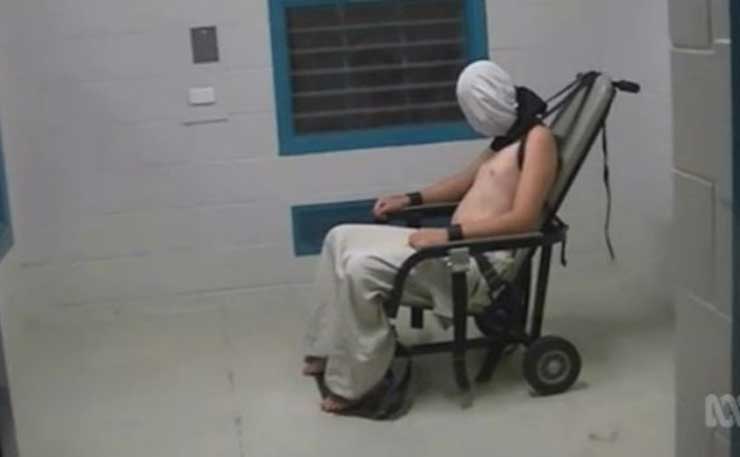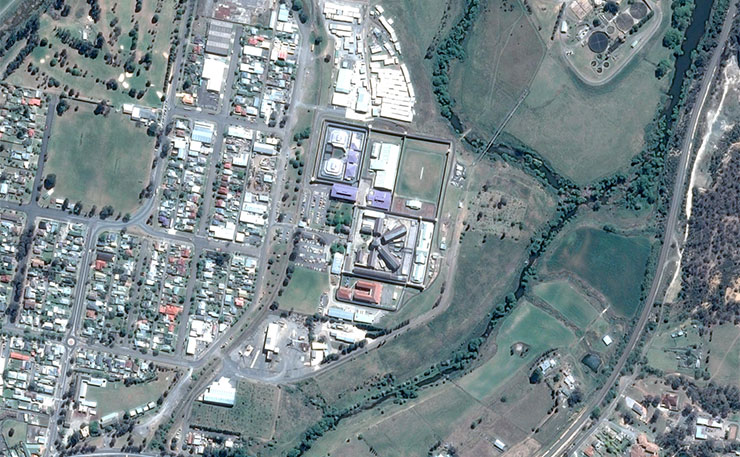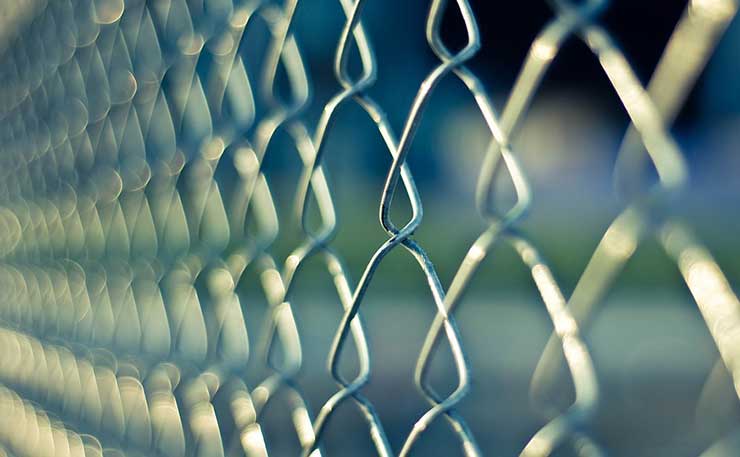It’s expensive, it’s often inhumane, and it doesn’t do what it’s supposed to. Welcome to the inexplicable world of incarceration. Stephanie Convery reports.
Prison, in the words of Michel Foucault, is the ‘darkest region in the apparatus of justice’. Even in the early 1800s, when prisons first began to replace torture and public execution as the primary means of state-administered punishment, they were widely condemned as ineffective in reducing the crime rate or preventing recidivism, and seen to actively reproduce the very circumstances that caused antisocial behaviour in the first place.
The arguments against prison are not new, but they are all the more imperative now in the wake of the outcry about conditions in juvenile detention centres in the Northern Territory. While effective and humanitarian alternatives to prison exist, so ingrained is the idea of incarceration as evidence of the administration of justice that we often find it difficult to conceive of any other way of appropriately responding to crime.
Yet it is the interests of politicians and big business that drives investment in prisons, detention centres and other ‘correctional’ infrastructure. The basis on which deterrence arguments are constructed is astoundingly flimsy: literally no empirical evidence exists to support the assertion that locking people away modifies behaviour for the better or acts as a deterrent.

There is, however, plenty of political capital to be made from appearing to be ‘tough on crime’, and an awful lot of money for those companies investing in the resulting infrastructure. You don’t have to support prison abolition in its entirety to recognise the fundamental problems with the privatisation of the justice system.
In 2012–2013, Australians spent $13.5 billion on criminal justice. Policing accounted for the vast majority of this expenditure – a staggering $9.8 billion, amounting to an average of $551 per Australian adult (it will surprise precisely nobody that in the Northern Territory, police expenditure was more than triple the national average, at $1760 per adult). Of the remainder, $3.8 billion was spent on prisons and community corrections, and the sector as a whole has experienced average growth of over 5 per cent per year over the past decade.
Corporations like Serco, Broadspectrum (formerly Transfield, recently acquired by Spanish-based multinational Ferrovial), and GEO Group Australia (formerly Australasian Correctional Management, the company under contract to run the Woomera detention centre at the time of the 2002 protests, and which still retains the contract to places like the Metropolitan Remand Centre) have a vested interest in not only stuffing more people behind bars, but ensuring that they stay there as long as possible.
Corporations have, in other words, a material stake in the production of criminals.
At the same time as spending in this area is growing, purportedly fiscal-minded governments around the country have been gutting services and support networks that prevent crime from occurring in the first place, such as welfare programs, mental health services and addiction support networks.
Until recently, for example, a pilot rehabilitation program known as CREDIT (Court Referral of Eligible Defendants into Treatment) was operating in New South Wales. CREDIT was designed to reduce recidivism by diverting offenders from the detention system and instead providing intensive support networks and social services.
The program was an overwhelming success, with over 95 per cent of surveyed participants reporting that their lives had changed for the better after completing the program. And yet, in spite of the program’s cost effectiveness and history of extremely positive outcomes, it was scrapped by the Baird government earlier this year.

There is also persuasive evidence to suggest that humanitarian intervention and carefully constructed social support networks can do much to prevent recidivism for perpetrators of even the most reviled crimes.
A sex offender support program called Circles of Support and Accountability (CoSA), for example, was piloted in Adelaide last year following successful operations in Canada, the UK, the USA and New Zealand. The program, built around the principles of restorative justice, boasts dramatically lowered rates of recidivism in sex offenders compared to those who do not participate in the program.
In addition, such programs seek to counteract misleading public narratives about sex offenders, the causes of such behaviour, and the capacity of individuals to reform.
Cycles of abuse are not broken in prison; if anything, they are entrenched. Prisons are closed environments in which the vulnerable and the predatory are forced to intermingle, and are themselves places in which crime not only frequently occurs but is routinely ignored, such as violence and sexual violence – under-researched, underreported, estimated to occur at a frightening rate and yet widely accepted by the public as a kind of informal administration of justice.
This cycle of abuse includes the entrenched persecution of marginalised groups. The massive overrepresentation of Indigenous Australians in the prison system is comparable to that of the Black population in both the USA and the UK. The detention centres operated under the Australian government’s watch on Manus Island and Nauru are exclusively designed for the indefinite incarceration of already-persecuted peoples who have, crucially, committed no crime whatsoever.
As Foucault argued, ‘all [prison’s] functioning operates as an abuse of power’.
The existence of alternative justice programs such as the CREDIT and CoSA should be exciting. They open the door to the beginning of a truly social, humanitarian justice system. They show us that it’s possible to build a world without the state-sanctioned violence and abuse that is inherent in the very structure of the prison system, and which we saw splashed across our television screens last week.
But that world won’t exist unless we fight for it.
Donate To New Matilda
New Matilda is a small, independent media outlet. We survive through reader contributions, and never losing a lawsuit. If you got something from this article, giving something back helps us to continue speaking truth to power. Every little bit counts.





